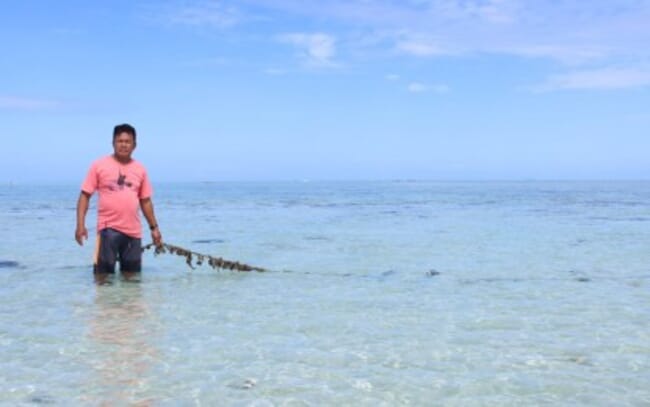
© BFAR
Seaweed farms around Dawahon Islet were hit hard by the typhoon, incurring losses worth PHP200 million ($3.9 million), including ready-to-harvest seaweeds, post-harvest facilities and fishing boats.
Dawahon has a population of about 10,000 and its residents have been relying on seaweed farming as their main source of income for over 50 years. In a bid to aid the recovery of the farms, last week BFAR gave the islet’s seaweed farmers implements, 1.2 tonnes of seaweed seedlings, ten 12-foot and ten 20-foot fibre glass boats, with engines and accessories, according to BFAR Eastern Visayas regional director Juan Albaladejo.
In total, he said that PHP4 million worth of seaweed farm implements and PHP1.5 million worth of post-harvest facility will be provided to the country’s seaweed farmers by the end of June.
"Hopefully in three months, we can have about 100 hectares or more seaweed farms actively producing seaweeds in Dawahon Island, depending on the hard work of our seaweed farmers. I know the strength and resiliency of our Dawahon farmers, so it's a matter of just putting the impetus and also the inputs for them to plant again," Albaladejo told the Philippine News Agency.
"BFAR will always be there to help because we know that we can bring back the production in Dawahon Bank and the sustainability of the Dawahon seaweed farmers livelihood, which will be shared with Bohol and Cebu. Altogether, we can do more wonders in our seaweed production," he added.
Ruel Inoc, a village official and member of Dawahon Seaweed Farmers Association, thanked BFAR for the immediate response after the destructive typhoon.
"We will wait for 30 days to produce seaweed seedlings for us to distribute to other farmers in our area," Inoc said.



